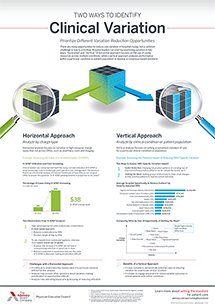Auto logout in seconds.
Continue LogoutPhysicians treating high-profile patients often feel pressure from the patients' families and hospital leaders to provide extra—and sometimes unnecessary—care, according to a study recently published in the Journal of Hospital Medicine.
Study details
For the study, researchers surveyed hospitalists at eight hospitals about the services the facilities provide to patients who are considered "VIPs," such as hospital board members and others who have close relationships to the hospital. According to the study, some hospitals provide extra services to VIP patients, such as access to special menus, dedicated personal care attendants, and private or luxury-style rooms.
Findings
One hundred and sixty hospitalists responded to the survey, and 78 reported the presence of VIP services at their facilities
According to the researchers, most of the respondents who said their hospitals provide VIP services also reported that they felt pressure from VIP patients or their families to provide the patients with additional treatments or tests the respondents believed were medically unnecessary. In addition, more than one-third of the respondents said they felt such pressure from hospital staff.
For instance, the researchers asked the hospitalists how they would react in a hypothetical situation in which a hospital board member was admitted with community-acquired pneumonia. The hypothetical patient was ready to be discharged but expressed concerns about leaving the hospital. According to the researchers, 55.7 percent of respondents who said their hospitals had VIP services reported that they would keep the patient in the hospital, compared with 24.4 percent of respondents whose hospitals do not provide VIP services. Of the respondents who said they would keep the patient in the hospital:
- 79 percent said their decision was related to the patients' concerns;
- 61 percent said their decision was related to the patients' connections to the hospital; and
- 15 percent said their decision was rooted in medical concerns.
Comments
The researchers wrote that the study "was not designed to quantify the burden of unnecessary care for VIP patients." However, they wrote that the findings "have implications for individual patients and public health, including potential effects on resource availability, the identification of clinically irrelevant incidental findings, and short- and long-term medical complications of procedures, testing, and radiation exposure."
Joshua Allen-Dicker, the study's lead author and a physician at Beth Israel Deaconess Medical Center, said more research on the topic is needed because the study accounts only for physicians' perspectives and does not include data on the quality of care VIP patients receive (Rappleye, Becker's Hospital Review, 3/21; Allen-Dicker et al., Journal of Hospital Medicine, March 2017; MacDonald, FierceHealthcare, 3/21; Rellosa, WBUR, 3/20).
One key to improving your hospital's quality: Identify clinical variation
There are many opportunities to reduce care variation in hospitals today—but how should you prioritize those opportunities?
You should start by examining variation in two ways: "horizontal" and "vertical." A horizontal approach focuses on the use of costly resources across multiple conditions, while a vertical approach analyzes performance within a particular condition or patient population to develop a consensus-based standard.
Our infographic gives an example of each approach and explains the challenges of a horizontal approach versus the benefits of a vertical one.
Don't miss out on the latest Advisory Board insights
Create your free account to access 1 resource, including the latest research and webinars.
Want access without creating an account?
You have 1 free members-only resource remaining this month.
1 free members-only resources remaining
1 free members-only resources remaining
You've reached your limit of free insights
Become a member to access all of Advisory Board's resources, events, and experts
Never miss out on the latest innovative health care content tailored to you.
Benefits include:
You've reached your limit of free insights
Become a member to access all of Advisory Board's resources, events, and experts
Never miss out on the latest innovative health care content tailored to you.
Benefits include:
This content is available through your Curated Research partnership with Advisory Board. Click on ‘view this resource’ to read the full piece
Email ask@advisory.com to learn more
Click on ‘Become a Member’ to learn about the benefits of a Full-Access partnership with Advisory Board
Never miss out on the latest innovative health care content tailored to you.
Benefits Include:
This is for members only. Learn more.
Click on ‘Become a Member’ to learn about the benefits of a Full-Access partnership with Advisory Board
Never miss out on the latest innovative health care content tailored to you.

